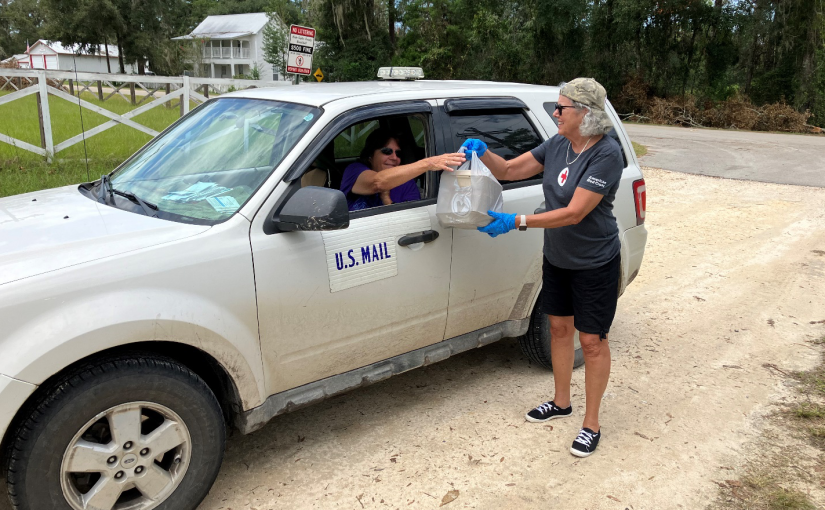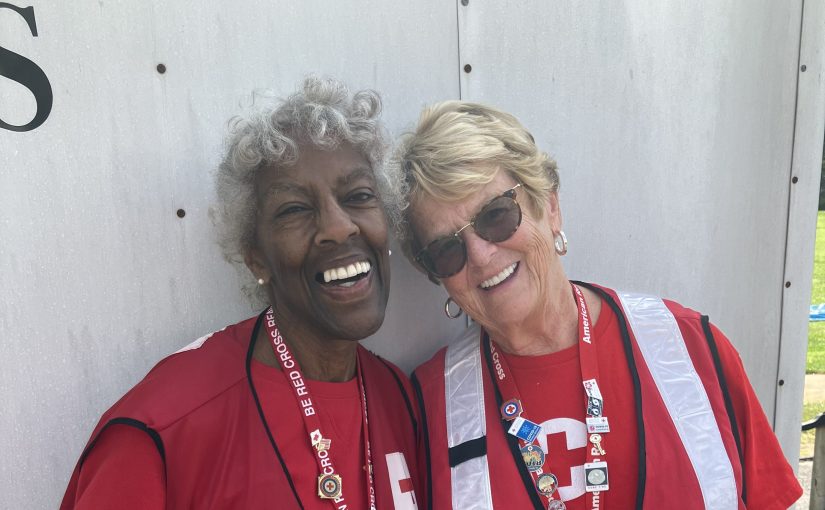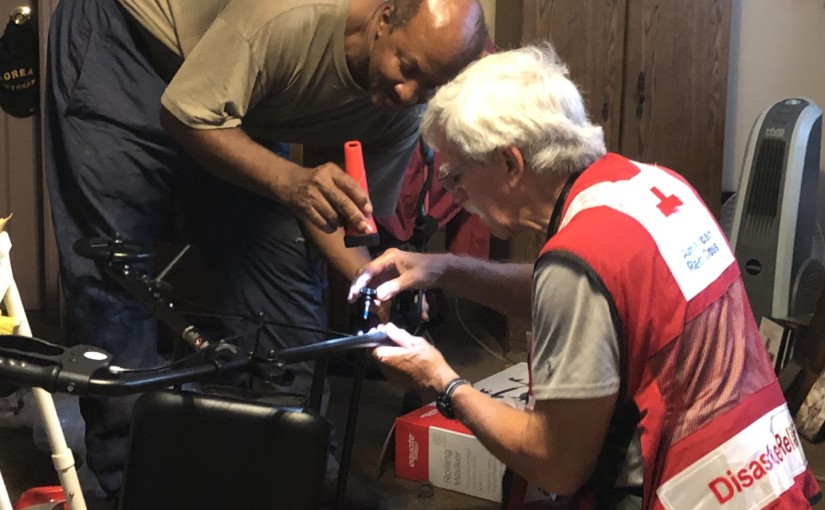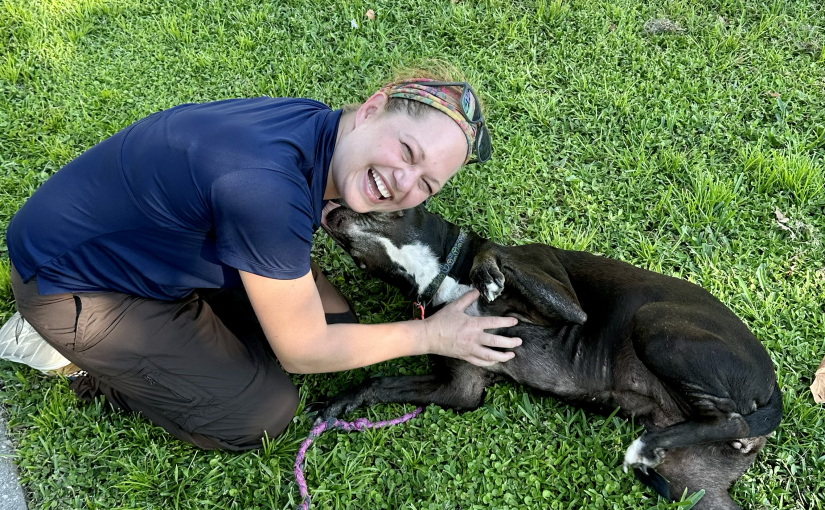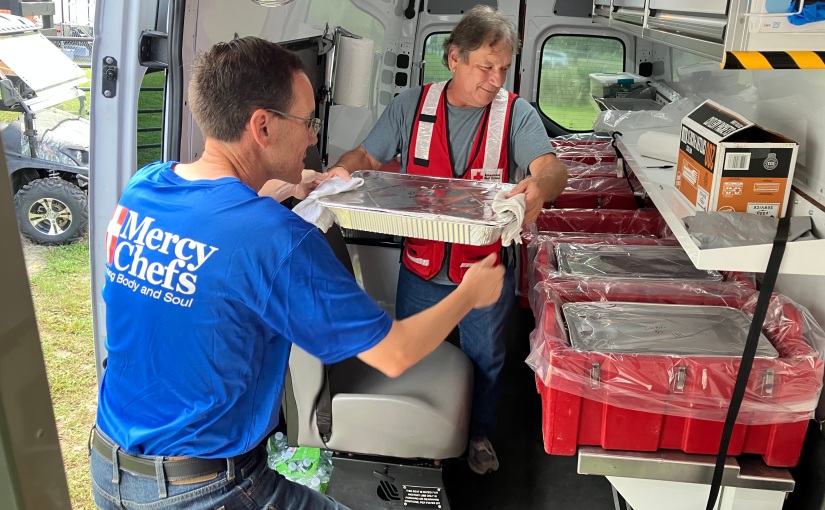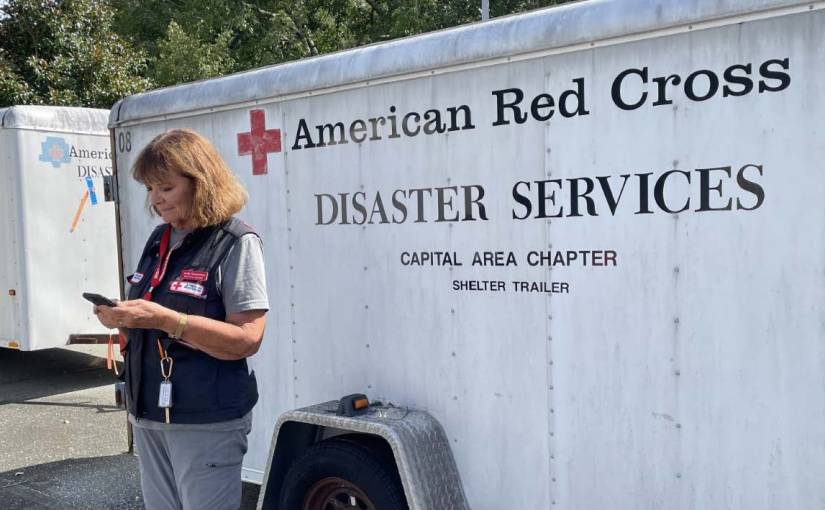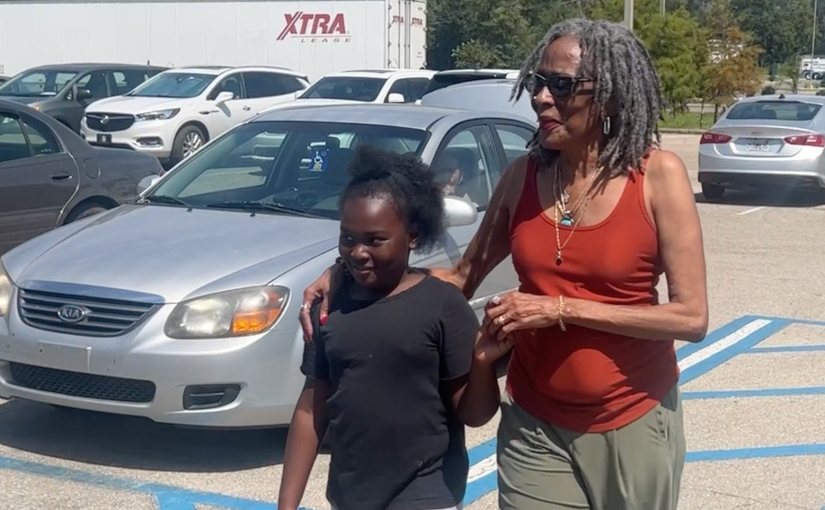A Taylor County resident was staying at Red Cross shelter in Perry, Florida after Hurricane Idalia made landfall Aug. 30, damaging homes, infrastructure and the power grid.
She wasn’t sleeping well for the first few nights she was there, so she asked the shelter staff if she could move her cot next to where her dog, Buttercup, was staying in a crate. That made all the difference, says Sandi Poreda, a Red Cross volunteer who is pet liaison for the Red Cross shelters established in Florida for residents affected by Idalia.
Once the woman was next to Buttercup, a basset hound mix, she was able to sleep through the night. “You could see how calm they were together,” Poreda says.
“Pets are family members,” says Poreda, a board member of the Capital Area chapter of the Red Cross of North Florida. “Imagine if you had to evacuate from a disaster and you didn’t know where your child [or another family member] was. How would that hinder your recovery? By keeping pets and their owners together, there is an emotional benefit – and that’s even more important to maintain during a disaster.”
Poreda is embracing a new role the Red Cross has established, pet liaison, as animals are being allowed in certain Red Cross shelters during disasters, when circumstances allow. A longtime “dog mom,” Poreda volunteers both for the Red Cross and the local humane society in Tallahassee. “This position was made for me,” she says, smiling. “It combines my two passions … I will always love the Red Cross, and animals.”
During the Hurricane Idalia response, dozens of pets were allowed in a few, select Red Cross shelters – including, cats, dogs, gerbils and even a squirrel that was being rehabilitated after an injury. Poreda has been traveling between all the shelters since the storm made landfall to check in and ensure that everything is running smoothly with the pets and their owners.
“Some people don’t feel safe without their pets,” says Poreda. “I understand. If I have to evacuate, my dog is my kid and he’s coming with me.”
The Red Cross requires animals to be restrained or kept in crates at shelters and it’s made clear that the owners, not Red Cross workers, are responsible for feeding, walking and cleaning up after the animals, Poreda stresses.
The animals are usually kept in an area that is separate or away from shelter residents without pets. If a resident raises a concern about being housed in the same building with pets, such as allergies, Red Cross workers will do their best to accommodate them, either moving them to another part of the building or relocating them to a shelter without pets, Poreda says.
It’s a new system, and Poreda admits that everyone is adapting and learning the best way to accommodate and help both two- and four-legged residents during disasters. However, the benefits are clear, she says.
When people are separated from their pets during a disaster, they worry about whether the animal is safe – and that worry and stress impedes their recovery, Poreda says.
“I’ve seen what happens when people are afraid to bring their pets to a shelter and leave them behind,” she says. “This is an incredible opportunity to help humans and animals that are affected by disasters.”
Animals in Red Cross shelters
- When possible, Red Cross shelter workers will do all they can to accommodate domesticated pets comfortably, however, depending on the situation, pets may need to be housed in a different location with support from animal welfare groups.
- Service animals are always welcome in Red Cross emergency shelters and are not considered pets.
- People who are evacuating to a Red Cross shelter can check redcross.org or the Red Cross Emergency app to see which shelters allow pets. Pet owners should bring food for their pet and a crate, pet carrier or other means of keeping their pet restrained at the shelter. Dog owners should also bring proof of their dog’s vaccinations, if possible.
Written by Bethany Bray Patterson

